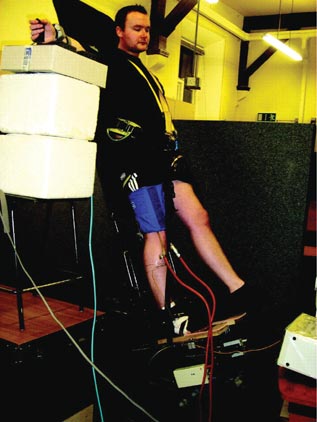| 2006 |

|
YEAR BOOK |
Trinity College Dublin
|
Understanding exercise intolerance in Type 2 Diabetes Mellitus
|

People with T2DM often perceive performance of exercise as difficult even at very low workloads. This exercise intolerance and physical inactivity can frequently incapacitate people with chronic T2DM to the point where they become socially isolated and depressed.
The Cardiovascular Health Unit in the Department of Physiology, Trinity College Dublin, is interested in understanding the influence of the circulation to the legs on exercise intolerance. We believe that lower limb exercise performance is impaired in patients with T2DM due partly to a slow rate of increase in the circulation to the leg muscles during the initial minutes of exercise. Our previous research has shown that the rapid response of calf muscle blood flow during lower leg exercise is slowed when the body is tilted from upright to supine posture, and that this slowed circulatory response is a strong predictor of exercise impairment.
The Cardiovascular Health Unit in the Department of Physiology would like to hear from female volunteers of all ages suffering from Type 2 Diabetes Mellitus as well as non-diabetic but overweight females who are interested in taking part in our exercise programmes. (For further information see contact details below).
Contact: Dr Mikel Ega�a,
Department of Physiology,
Trinity College, Dublin 2
Tel: 1 608 3728
E-mail: [email protected]